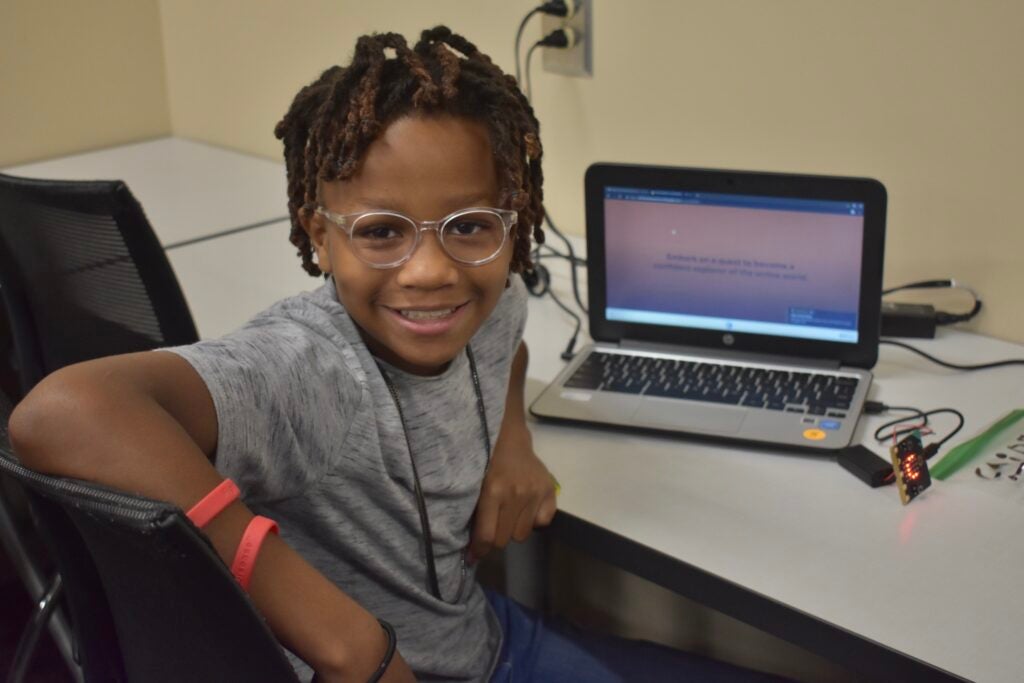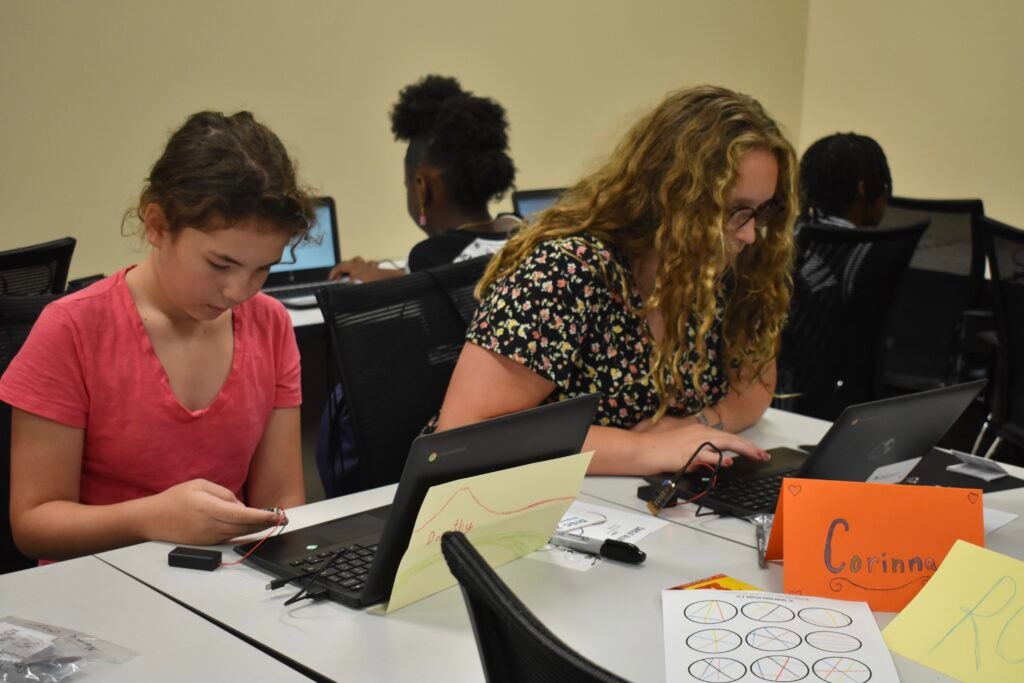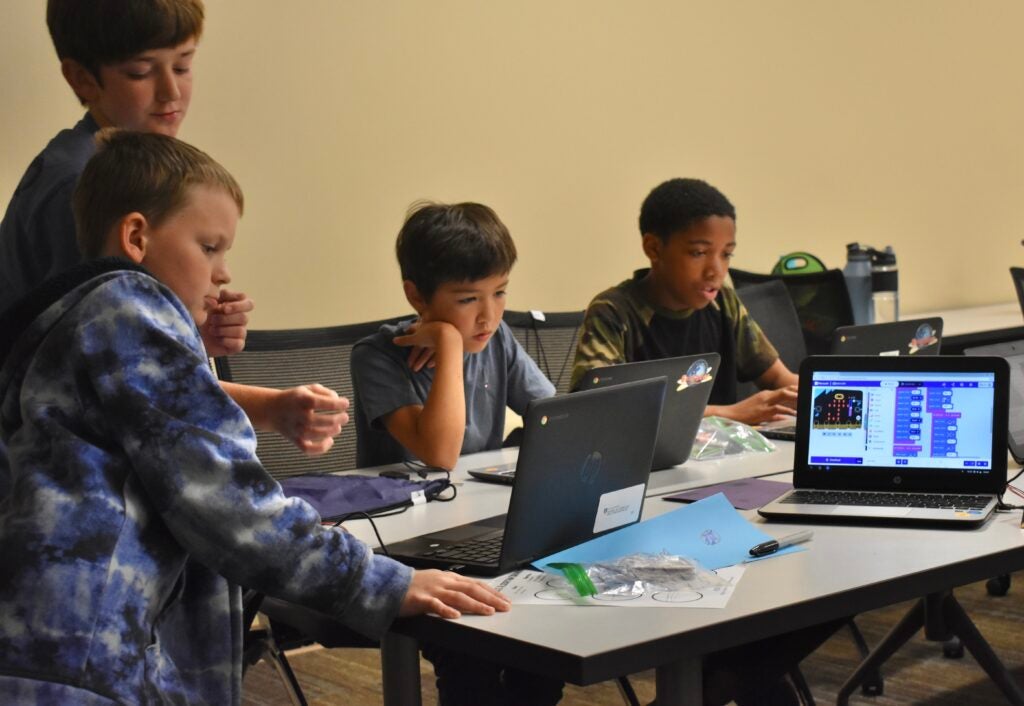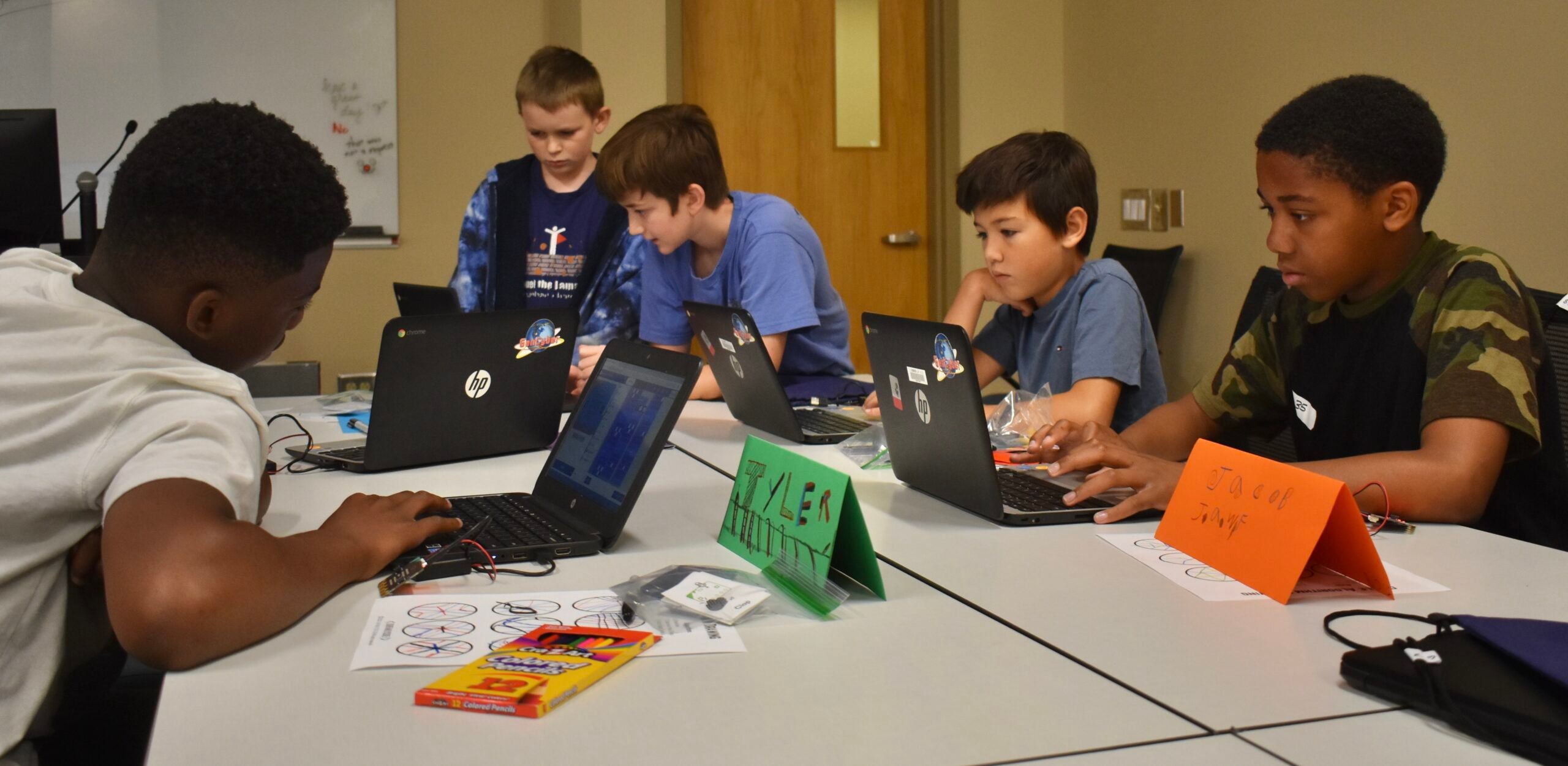To pique children’s interest in computer and cyber sciences early on, Augusta University is hosting a free summer camp from June 26 to 30 for grades 4-8 on the Summerville Campus.
The Virtual Institutes for Cyber and Electromagnetic Spectrum Research and Employ (VICEROY) Kids camp is an extension of AU’s college program and offers campers a variety of lessons and activities, including: how to use micro:bits to build electronics, programming with Makecode and/or Python, and an introduction to cybersecurity and cyber ethics.
“The goal is to get younger kids interested in computer science and cyber security,” said Michael Nowatski, co-facilitator of the VICEROY Kids Camp and university professor. “A lot of times we’re told that by the time kids get to late middle school they’ve already decided what their [career] path may be, and if they have not been exposed to cybersecurity and computing early on then they may not have those ideas in their head to be able to choose such disciplines later in life.”
According to Nowatski, the field has almost 700,000 job vacancies, and hopes the camp will alleviate some of the nation’s needs by encouraging more to “join the pipeline.” With a clear need in not only the nation but directly in Augusta’s community, evident by the recent cyberattacks of government systems, Nowatski said his colleagues were shocked to unexpectedly receive about 100 applicants for the program’s second year – more than double of last year’s 40 attendees.
“The most important thing is giving them excitement and an interest to continue learning more and more about what we’re teaching them this week,” he said.
In addition to gaining interest in possible STEM and computer science careers, Nowatski said it gave children the chance to learn about the importance of protecting one’s information when online.
“It’s foundational cybersecurity, think of it almost as cyber hygiene, like not sharing your passwords, or setting up different passwords for all your accounts, not clicking on those weird links that you get in your email or text messages,” he said.
First time camper Caiden Mayo, who will be starting sixth grade in the fall at John S. Davidson Fine Arts Magnet School, said he enjoyed the VICEROY program because it taught him how to code a “cool” electronic while also allowing him to make new friends.
“You learn how cybersecurity can help and not to share your information with anybody,” he said. “You learn about phishing attacks too, and that can show a lot of personal information.”

With an accepting environment featuring boys and girls as well as a customizable curriculum for all campers, AU’s VICEROY Kids camp even makes adjustments to fit the needs of participants with special needs.
“My speciality is the College of Education, so technically I believe every teacher should be able to [personalize] the curriculum – it’s called differentiating,” said Ashley Gess, co-facilitator and assistant professor at University of South Carolina. “That’s what we’re doing here … we’re welcoming everyone into our camp.”
According to Gess, research has even shown that those with autism are even more well suited to learn and succeed in coding.
For students who are more advanced, Gess’ son Jacob, a cyber sciences sophomore at Augusta University, volunteers with the program to educate them on creating lines of code, also known as Python coding.
Ashley Gess also said the camp was important because it allowed counselors to heavily encourage girls to seek out a future career in computer sciences – a mostly male dominated field.
“Girls are interested in the application, in seeing the result,” she said. “[The industry] is doing all kinds of stuff now with LED lights on purses,” she said. “Wearable tech is a thing now, or make a pair of pants that automatically counts your steps … this is why you see so many women in healthcare, because what they are doing immediately serves someone.”

On the second day of camp, depending on their skill level, students from around the CSRA were separated into different groups where they were given a small device, known as a micro:bit, to program as each saw fit in preparation for their final camp challenge.
Utilizing code they learned from leaders at the day camp, some students chose to program their micro:bit to play music, while others embedded the device to showcase symbols, pictures or letters.
“They can program it to help you remember to water your plants or play music; it does all kinds of stuff,” said Ashley Gess.
With one student using his hands to “jam” out in the classroom by creating a fast-paced drum beat to accompany his micro:bit’s song, another highlighted the device’s small LED lights to compose an image of a man playing basketball.
Sam Atten, one of the more advanced campers at VICEROY who will be going into fifth grade, said he liked learning about cybersecurity and coding whenever possible, because of the impact it has on people’s day-to-day lives.

“Coding is fun because you can make a ton of different things with it, and we need coding so that all of our electronics work,” he said. “We also need electricity, but without coding none of our devices would work.”
Towards the end of the week, every group of campers were tasked with applying all their learned skills into a final project, which they would present on the final day of camp.
In the future, Ashley Gess said she hopes the camp will continue to expand in order to meet children’s growing interest in the field.
“We would really love to be able to serve much bigger numbers; this is just the place for it,” she said. “I’m here and in it for the long haul … and this is just so exciting.”











